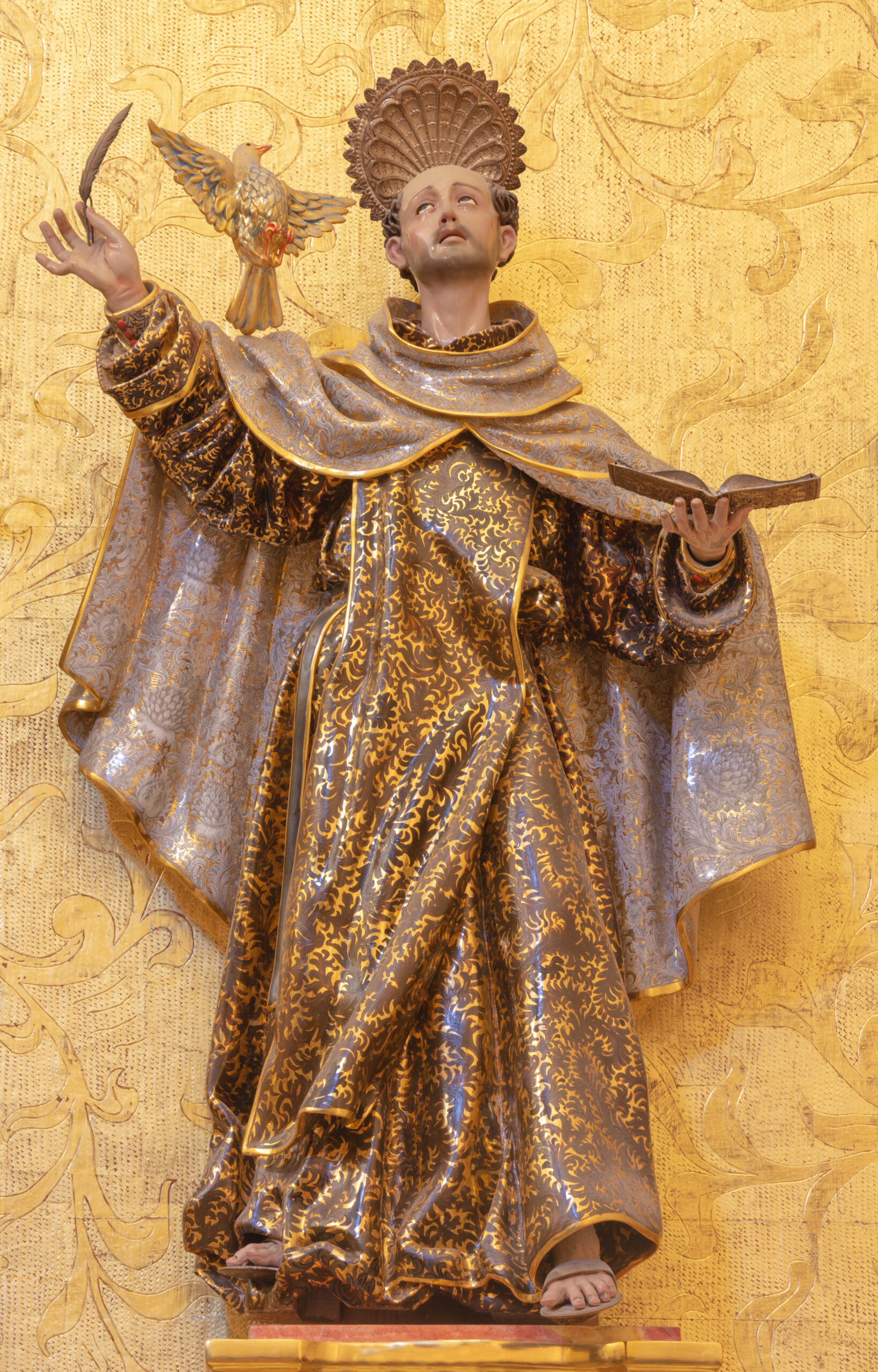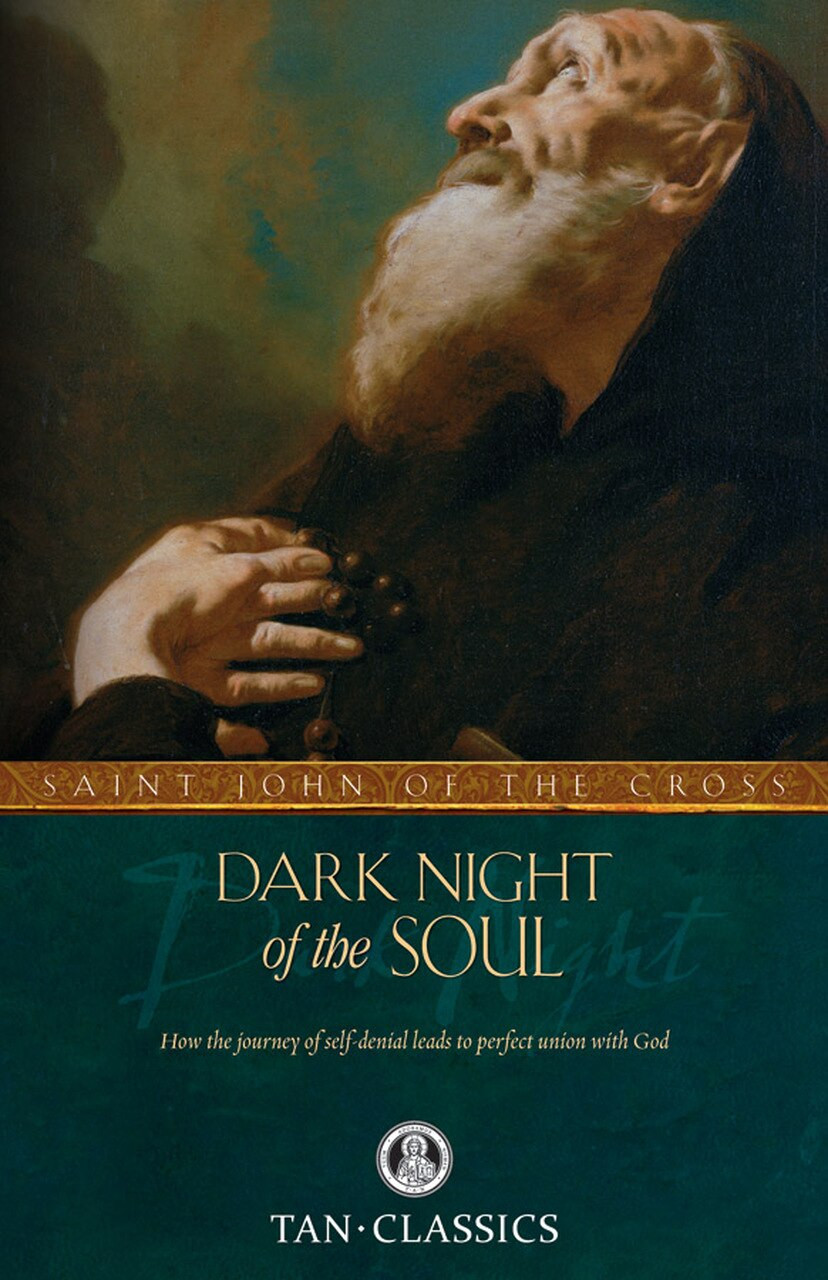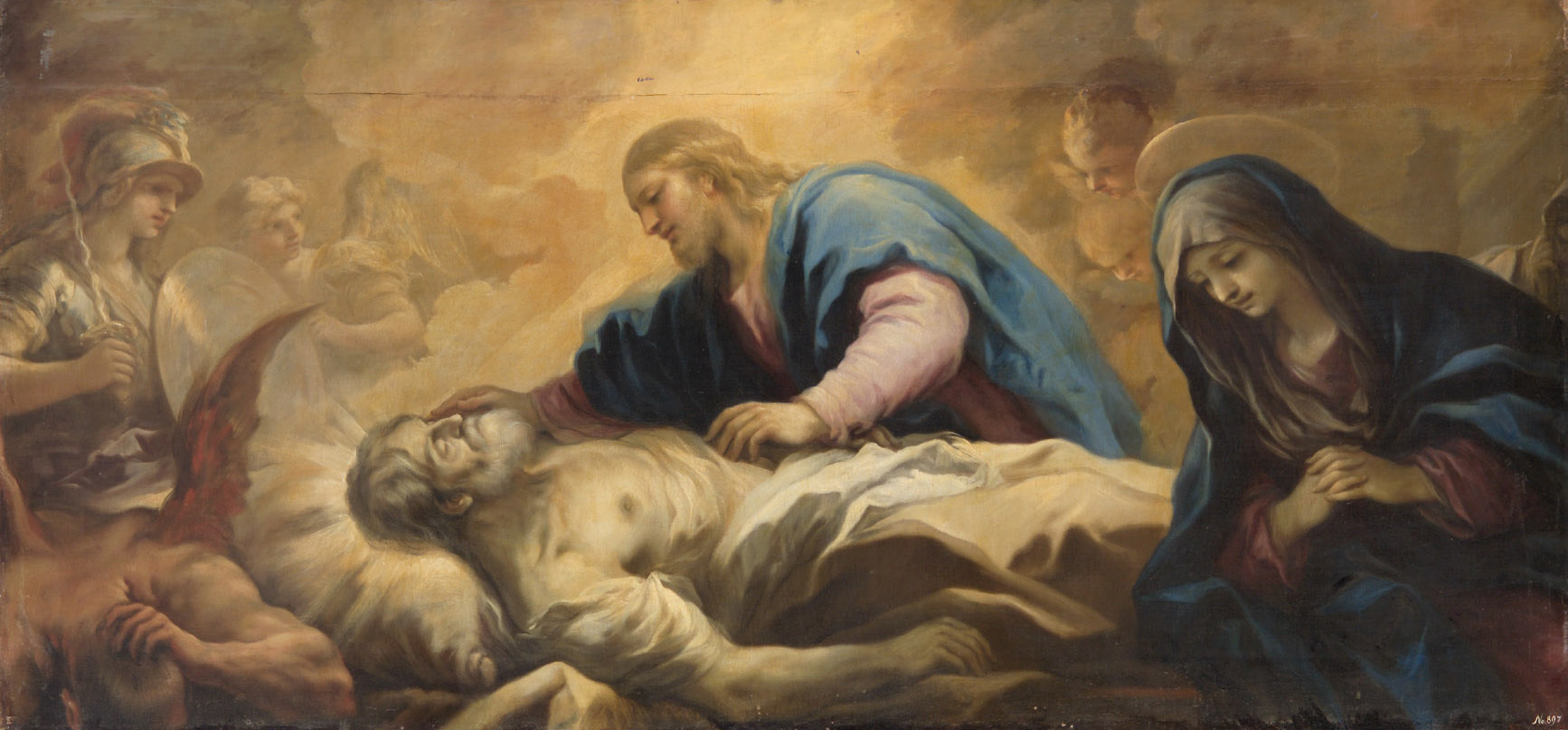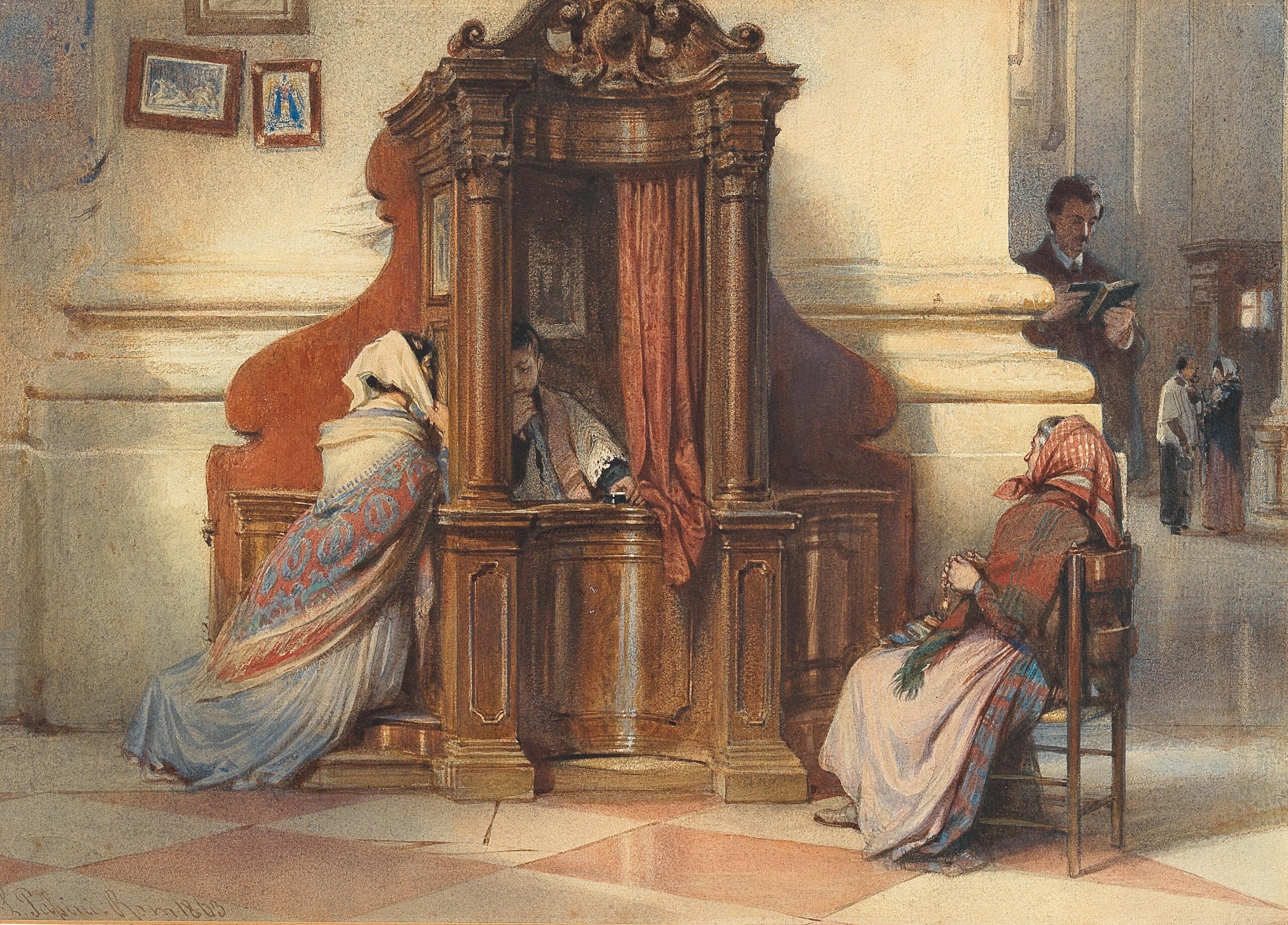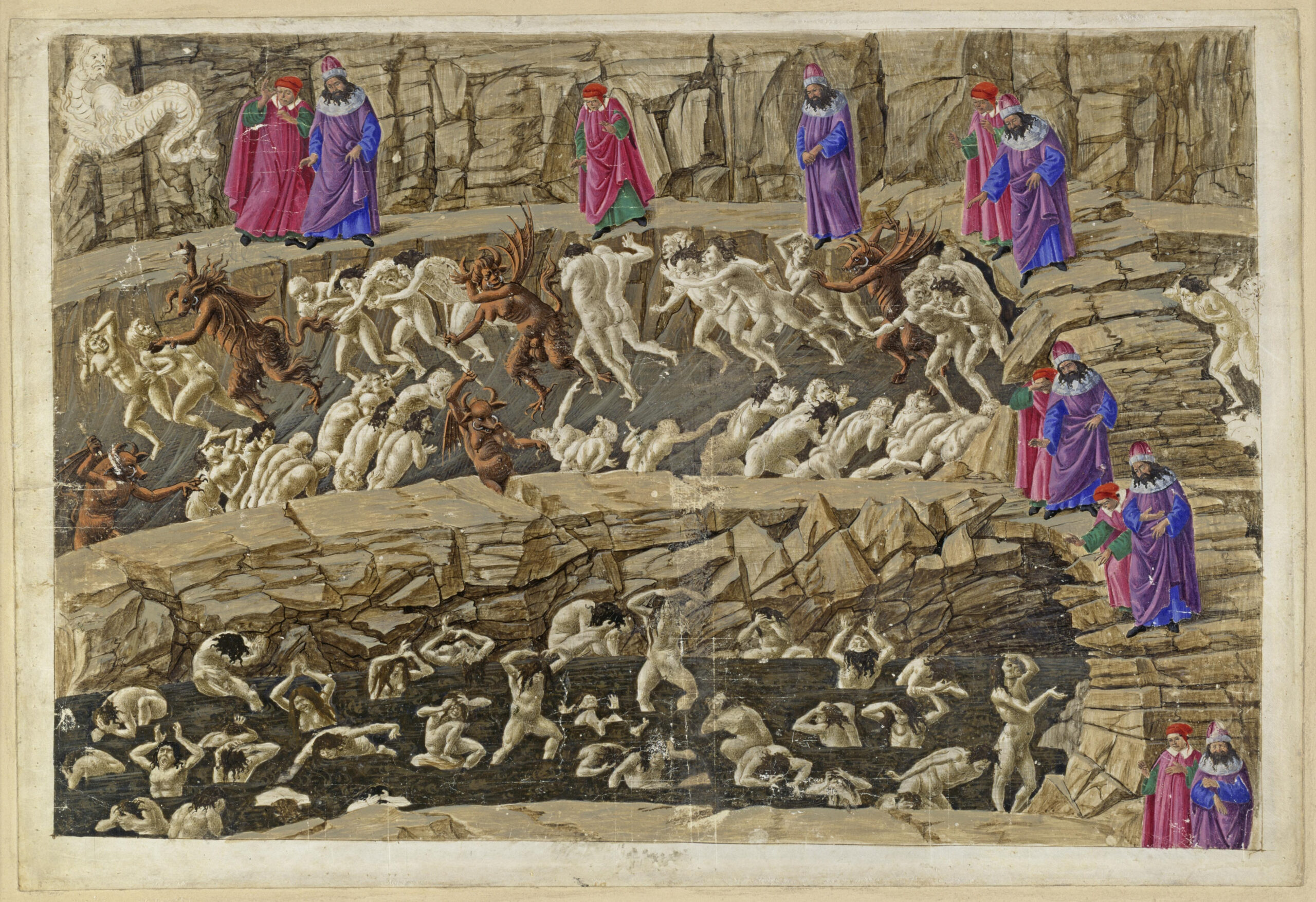In this excerpt from The Dark Night of the Soul, Saint John of the Cross discusses how the dark night transforms and enlightens a soul who undergoes this purgation.
The Dark Night Gives Light in Everything
IT REMAINS for me now to explain that this blessed night, though it darkens the mind, does so only to give it light in everything; and though it humbles it and makes it miserable, it does so only to raise it up and set it free; and though it impoverishes it and empties it of all its natural self and liking, it does so only to enable it to reach forward divinely to the possession and fruition of all things, both of heaven and earth, in perfect liberty of spirit.
All Natural Feelings and Sweetness are Annihilated
As the children of Israel, merely on account of that single affection for, and remembrance of, the fleshpots of Egypt, could not taste the delicious bread of angels, the manna in the desert, which, as the divine writings tell us, had “the sweetness of all taste,” and “turned to that every man would,” so the mind which is still subject to any actual or habitual affection or particular or narrow mode of apprehending, or understanding anything, cannot taste the sweetness of the spirit of liberty, according to the desire of the will. The reason is this: the affections, feelings, and apprehensions of the perfect spirit, being of so high an order and specially divine, are of another kind and different from those which are natural; and in order to be actually and habitually enjoyed, require the annihilation of the latter, as happens with two contraries which cannot coexist in the same subject.
It is therefore very expedient and necessary, if the soul is to advance to these heights, that the dark night of contemplation should first bring it to nothing, and undo it in all its meannesses, bringing it into darkness, aridities, loneliness, and emptiness; for the light that is to be given it is a certain divine light of the highest nature, surpassing all natural light, and not naturally cognizable by the understanding. If the understanding is to be united with that light, and become divine in the state of perfection, it must first of all be purified and annihilated as to its natural light, which must be brought actually into darkness by means of this dim contemplation.
A Darkness that Permeates the Depths of the Spirit
This darkness must continue so long as it is necessary to destroy the habit, long ago contracted, of understanding things in a natural way, and until the divine enlightening shall have taken its place. And therefore inasmuch as the power of understanding, previously exerted, is natural, the result is that the darkness now endured is awful, and most afflictive, as it were solid, because it reaches to, and is felt in, the innermost depths of the spirit.
Moreover, in order to attain to the divine union, for which the dark night disposes it, the soul must be endowed and replenished with a certain glorious magnificence in the divine communication, which includes innumerable blessings and joys, surpassing all the abundance which the soul can naturally possess. It is necessary for it that it should be first brought into a state of emptiness and spiritual poverty, detached from all help and consolation in all the things of heaven and earth, that being thus empty it may be really poor in spirit and divested of the old man, and may live that new and blessed life to which it attains in this dark night which is the state of union with God.
And because the soul is to attain to the possession of a certain sense, and divine knowledge, most generous and full of sweetness, of all human and divine things which do not fall within the commonsense and natural perceptions of the soul—it views them with different eyes now; as the light and grace of the Holy Ghost differ from those of sense, the divine from the human—it is necessary that the spirit should be brought low, and inured to hardships in all that relates to the natural and common sense.
The Spirit Is Drawn Away from Ordinary Things
For this night is drawing the spirit away from its ordinary and common sense of things, that it may draw it towards the divine sense, which is a stranger and an alien to all human ways; so much so that the soul seems to be carried out of itself. At other times it looks upon itself as if under the influence of some charm or spell, and is amazed at all that it hears and sees, which seem to it to be most strange and out of the way, though in reality they are, as they usually are, the same.
The soul suffers all these afflictive purgations of the spirit that it may be born again to the life of the spirit through the divine inflowing, and in these pangs bring forth the spirit of salvation, fulfilling the words of Isaiah: “So are we become in Thy presence, O Lord. We have conceived, and been as it were in labor, and, have brought forth the spirit” of salvation. Moreover, as in the night of contemplation the soul is prepared for that tranquility and inward peace which is such and so full of delight as, in the words of Scripture, to “pass all understanding,” it is necessary for the soul that all its former peace, which, because involved in so many imperfections, was no peace, though it seemed to be a twofold peace, namely, of sense and spirit…
The Soul Imagines Itself to Be Lost
This is a painful unsettling, full of misgivings, imaginations, and inward struggles, in which the soul, at the sight and in the consciousness of its own misery, imagines itself to be lost, and all its good to have perished for ever. In this state the spirit is pierced by sorrow so profound as to occasion strong spiritual groans and cries, to which at times it gives utterance, and tears break forth, if there be any strength left for them, though this relief is but rarely granted.
Such is the work wrought in the soul by this night that hideth the hopes of the light of day. It was in reference to it that Job said, “In the night my mouth is pierced with sorrows, and they that feed upon me do not sleep.”
This warfare and combat are deep, because the peace hoped for is most deep: the spiritual sorrow is interior, refined, and pure, because the love to be enjoyed must be also most interior and pure. The more interior and perfect the work, the more interior, perfect, and pure must the labor be that produces it; and the stronger the building, the more solid it is.
The Sweetness Found In Contemplation
Let us now see why the light of contemplation, so sweet and lovely to the soul that nothing is more desirable—for it is that, as I said before, whereby the divine union takes place, and whereby the soul in the state of perfection finds all the good it desires—produces, when it strikes the soul, these painful beginnings and terrible effects. The answer is easy, and is already given in part; there is nothing in contemplation and the divine inflowing, to cause pain, but rather much sweetness and joy, as the soul will find later. The cause is the imperfection and weakness of the soul, and dispositions not fit for the reception of this sweetness. And so, when the divine light beats upon the soul, it makes it suffer in the way described.
ooo
This article is taken from a chapter in The Dark Night of the Soul by Saint John of the Cross which is available from TAN Books.



